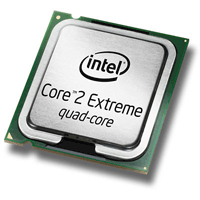
Top 5 non-obvious feature enhancements to Office 2010
The question has been asked, who really needs to use Microsoft Office these days? The answer is, anyone who is in the business of professionally generating content for a paying customer. Word 2010 may not be the optimum tool for the everyday blogger, and Excel 2010 maybe not the best summer trip planner, just as a John Deere is not the optimum vehicle for a trip to the grocery store. But in recent years, Microsoft is the only software producer that has come close to understanding what professional content creators require in their daily toolset.
So far, the improvements we've found from actually using the Office 2010 Technical Preview released Monday (as opposed to the ones Microsoft told us about) can mainly be described as usability enhancements -- tools that appear to be responses to how people actually use the products. Compared to Office 2007, which threw out the old instruction manual with regard to how applications should work, Office 2010's changes are subtler, slicker, and less ostentatious. Of those we've noticed in our initial tests, here are five which we feel will make compelling arguments for at least some users to upgrade:

Security and the e-textbooks proposal
I have a test of nerves for you. I want you to go grab $200 in twenties and some plastic wrap. (Look in the kitchen for the plastic wrap; you're on your own for the cash.) Wrap the cash in the plastic. Now find a kid, preferably one of about elementary-school age. An assortment of kids of various ages is better, if you have multiple instances of plastic-wrapped bills, though the ease of finding extra cash around the house is of course inversely related to the number of kids present.
Each child should come naturally equipped with a backpack, which they use to haul stuff to school, playdates, and the homes of other family members as well as for random covert storage purposes. Now, I want you to reach into each backpack (don't be scared!) and place a plastic-wrapped bundle of money in there. Tell the child that the money is her responsibility from now on; it must be present and accounted for at all times; they will spend much of every day looking at it but will not be allowed to use it as they please; damaged money or plastic will get the child into trouble.

Apple iTunes builds onto its garden walls with Palm Pre sync shutdown
With the latest version of iTunes (8.2.1), Apple has addressed what it calls "an issue with verification of Apple devices," that is, it now verifies that the Palm Pre is not one.
It was bound to happen. Both Palm and Sprint warned Pre owners of a possible rejection, and Apple last month issued an a report saying, "Newer versions of Apple's iTunes software may no longer provide syncing functionality with non-Apple digital media players."

MySpace ages away from its social networking heritage
Last Month, Betanews' Scott Fulton asked "What will become of MySpace after a 30% headcount reduction?" None other than the highest man in the MySpace architecture, parent company News Corp. CEO Rupert Murdoch, answered that question this week.
In an interview with The Wall Street Journal yesterday, Murdoch said the fading social network will need to refocus itself as an entertainment portal.

Steve Ballmer's denial can't stop change from coming
"On résiste à l'invasion des armées; on ne résiste pas à l'invasion des idées." -- Victor Hugo
Literal translation: "One withstands the invasion of armies; one does not withstand the invasion of ideas."
Often paraphrased: "Nothing is as powerful as an idea whose time has come."
Web-based operating system/platform is an idea whose time has come, whether or not Google succeeds with Chrome OS. Microsoft CEO Steve Ballmer can deny it. He can march his Office 2010 and Windows 7 armies into the enterprise. But, elsewhere, the Web platform is turning from idea to practical reality -- in large part because of mobile handsets.

Windows 7 E: Microsoft's sensible response to Europe
Yesterday, in a Windows 7 for Developers blog post, Microsoft revealed more details about the special version of Windows 7 for the European Union. The company isn't ripping out Internet Explorer 8 so much as using the "Turn Windows on or off" tool to disable the browser. For all practical purposes, IE8 won't be available to end users or third-party applications. However, Internet Web Applications components will remain.
About 30 days ago, in a brilliant solution to a troubling problem, Microsoft announced plans to release an "E" version of Windows 7 sans the browser. Windows 7 E will be exclusively distributed in the EU, where the European Competition Commission is nearly ready to officially rule that Microsoft's bundling Internet Explorer with Windows is an anticompetitive act. The European Commission is currently entertaining remedies, which are rumored to include a proposal for presenting Windows users with a choice of browsers to set as default during installation.

Bing and Chrome OS: What if it's all bluster?
In the final scenes of Twilight's Last Gleaming (1977), which history may yet restore to its rightful place as one of the dumbest movies ever made, the President of the United States (Charles Durning) learns from a renegade general-turned-prison escapee (Burt Lancaster) that the whole point of the Vietnam War was a geopolitical bluster intended to convince the Soviet Union that the US was crazy enough to engage in World War III if it had to. After the President is told this Earth-shattering information by his kidnapper, his own cabinet conspire to assassinate him to prevent the information from being revealed in a press conference. This despite the fact that the real world was already entitled to The Pentagon Papers in paperback for several years, though readers clearly preferred Jaws and The Exorcist.
It is no "eyes-only" confidential secret that bluster is a very effective political and marketing tool at the disposal of anyone who can afford to use it. So you're safe from any assassination attempts from the likes of Joseph Cotten or Richard Widmark. Meanwhile, anyone reading Betanews on a daily basis over the last few weeks might get the impression that World War III is about to be triggered by the volatile mix of Google and Microsoft, or that at least some of us here who may have stayed up too late to watch Twilight's Last Gleaming on AMC may think so.

Google Voice apps launch for BlackBerry, Android
Google today released apps for BlackBerry and Android that allow the still-in-invite-only-beta Google Voice service to be accessed directly through users' smartphones.
The app lets users make outgoing calls or send texts from their Google Voice number through their BlackBerry or Android device. To place a call before the app existed, users had to dial their own Google Voice number from their cell or use the "Quick Call" button from the Web-based component. The app also handles voice mail duties by recording the messages from missed callers and transcribing them into text.

First TraceMonkey vulnerability poses new priorities for Firefox 3.5.1
Developers on the "Shiretoko" track for Mozilla's new open source Firefox 3.5 Web browser now have very good reason to expect a ship date for the first round of bug fixes and vulnerabilities. A very big vulnerability has turned up in just the wrong place: a public site for posting exploits.
The problem is a new permutation of an old exploit technique that, ironically, was first brought to prominence in 2006 by a package called "Internet Exploiter." It's called a heap spray, comprised of shellcode that's set to be distributed into an area in blocks, a bit like spraying bricks into a wall. The resulting pattern may contain executable code that can be triggered through an overflow; and in this case, it's version 3.5's embedded font support, using the <FONT> tag, that's the trigger.

Beta 2 of iPhone OS 3.1 adds Wi-Fi, kills tethering
Last night, Apple released the second iPhone OS 3.1 beta to developers, roughly two weeks after the first beta was released, adding several new features to the growing list of iPhone 3.1 features, but also terminating the popular IPCC tethering hack.
While the first SDK beta introduced a handful of new, but only moderately noteworthy features, such as Voice Control over Bluetooth, the second beta gives developers running Xcode the ability to wirelessly connect to their iPhones for development and testing purposes.

What's Now: Ballmer on Chrome, Google in Labs, and a Twitter novel
Ballmer ... reacts ... to Chrome OS
Tuesday, July 14, 2009 • During yesterday's Worldwide Partner Conference in New Orleans, Microsoft CEO Steve Ballmer made his first public comments about Google's Chrome OS -- and to no one's surprised, he's not really moved by it, at least not to any degree he wants people to know about.

TiVo lawsuit explodes into billion-dollar stakes
Yesterday, in a go-for-broke strategy which could very well snatch victory from the jaws of defeat, satellite TV systems manufacturer EchoStar (partner and former owner of Dish Network) filed a motion in US District Court in Marshall, Texas, asking the court to suspend proceedings until the outcome of EchoStar's federal appeal is heard, in the patent infringement case brought against it by DVR manufacturer TiVo. An injunction against EchoStar is being stayed pending that appeal.
That's not a big deal in itself. What is big is EchoStar's assertion that sanctions being sought against it amount to as much as $1 billion -- the first time the proverbial math has alluded to TiVo's potential jackpot. This in addition to the $104 million that the Supreme Court decided EchoStar was liable for, in its refusal to hear EchoStar's first appeal.

Intel's sunny outlook brightens the sector
Dell may be in the doldrums, but Intel for one doesn't share that particular vendor's gloom. The chip giant on Tuesday turned in Q2 results that caused audible smiles from analysts participating in the company's quarterly earnings call.
Granted, the company did post its first quarterly net loss since 1986 for the quarter that concluded on June 27 -- a GAAP operating loss of $12 million, a net loss of $398 million, and a loss per share of 7 cents. But that's the European Union, not the market, at work, as the company's results absorbed a $1.45 billion antitrust fine from that quarter. Excluding that, the firm earned $1.4 billion in operating revenue, $1 billion in net income, and earnings per share of 18 cents.

Who says Microsoft has turned the corner?
It's unusual for me to disagree with Microsoft's most infamous, anonymous employee blogger. Mini-Microsoft says that "Microsoft has turned the corner." In his dreams, or perhaps some Xbox 360 role-playing game, Microsoft has turned the corner and found a hallway and door to the outside sun. But in this universe, if Microsoft has turned the corner, it's into a wall.
Microsoft has got big problems for which there are no easy solutions; I'll get to those later in the post. Mini rightly identifies some things that Microsoft is doing right, and they are certainly commendable. They're just not enough. I'll give his shortlist with my perspective:

Is Office 2010 Oh-So 2005?
Last night, I watched the 11 Microsoft videos introducing various Office 2010, Office Mobile and Office Web Applications features. I kept thinking: Microsoft is living in the past. The reaction was about the same for each video. Office 2010 will come five years late.
The past ultimately derives from Microsoft's application stack -- Office-Windows-Windows Server -- that the company desperately is trying to preserve. The new stack goes from mobile device to the cloud, which Microsoft cautiously embraces for fear of upsetting lucrative revenue streams tied to its established applications stack.